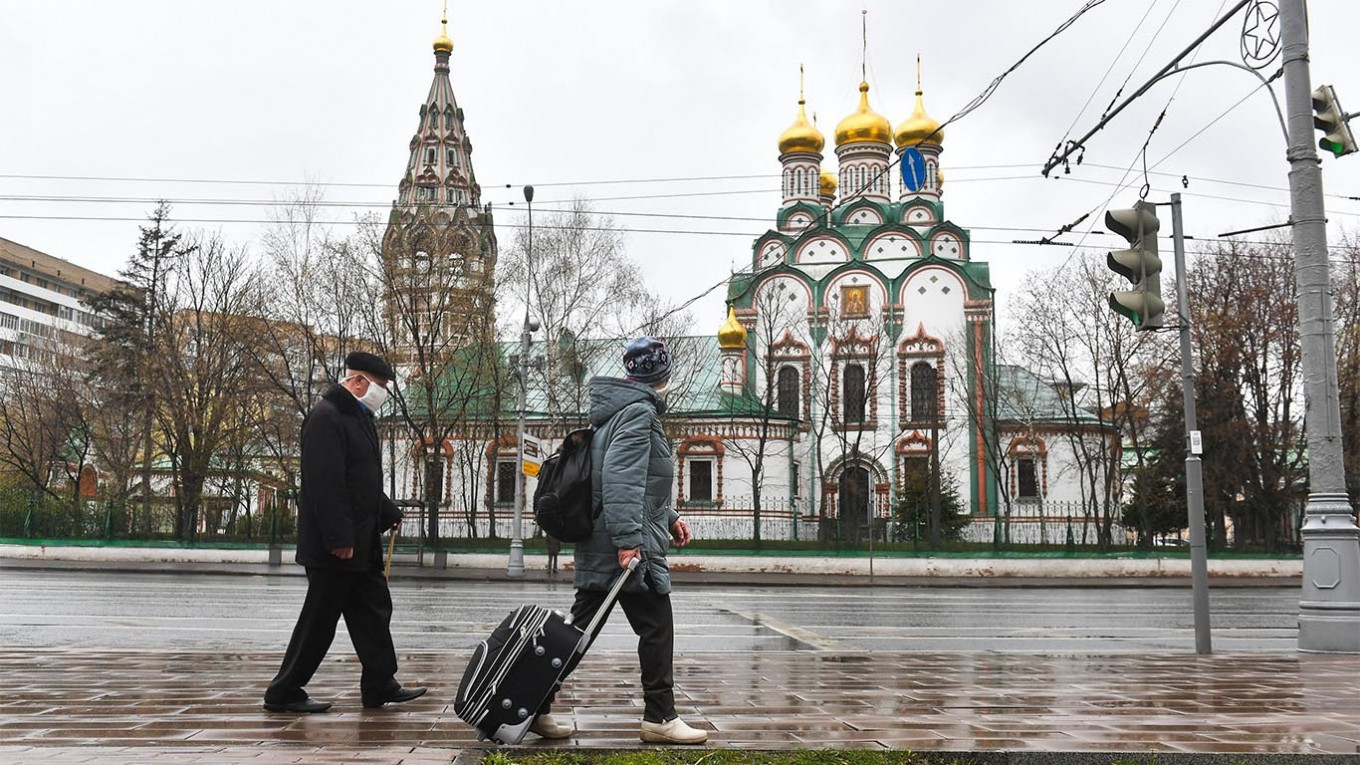
Russia has been seeing an increase in coronavirus infections despite a series of confinement measures, prompting President Vladimir Putin to warn of “extraordinary” scenarios.
Here are five things to know about the epidemic in Russia:
Where is the virus spreading?
Moscow, with a population of more than 12 million people, is the coronavirus epicenter in Russia and has so far reported just over 13,000 cases out of the nationwide tally of 21,102.
The Moscow region, where many of those working in the capital live, has registered a much higher than average rate of infection, with 36 percent of new cases on Monday against a national average of about 16 percent.
Consumer health watchdog chief Anna Popova warned that infections in Russia’s regions were spreading through hotspots, over half of them in healthcare facilities.
Clinics have become the main spreaders in the northern Komi republic, which has reported one of the highest per-capita rates in the country. Komi governor resigned this month amid accusations that he had failed to contain the outbreak.
Putin concerned
Putin, who initially insisted the contagion was “under control,” on Monday warned that Russia should be ready for “the most complicated and extraordinary” scenarios.
Since the start of the outbreak, the Kremlin chief has addressed the public several times, urging Russians to stay at home but telling their employers to continue paying their salaries without giving the companies any support.
He acknowledged on Tuesday that the lockdown was a “shock” to industries and said more anti-crisis measures were needed.
Measures taken
In an effort to battle the epidemic, the government has mobilized additional healthcare workers, recruiting medical school teachers, researchers and post-graduate medical students and providing 1.1 million medics with additional online courses.
Some 33 billion rubles ($449 million) has been allocated to preparing 95,000 additional hospital beds.
Russia reported having carried out 1.4 million coronavirus tests, becoming one of the “leading countries” in terms of people tested, Deputy Prime Minister Tatyana Golikova said.
Popova, the consumer health watchdog chief, has claimed the result is 98 percent accurate.
But some experts have voiced concern over the quality of the tests, with one senior doctor saying last week that up to 30 percent may return false negative results.
On Tuesday the health watchdog was due to begin testing Moscow healthcare workers for antibodies to the coronavirus.
Economic consequences
The lockdown could leave some 8 million people jobless this year, warned Alexei Kudrin, head of the state Audit Chamber and a former finance minister.
A report called Coronacrisis-2020 published by a group of liberal Russian economists on Monday predicted that the country’s economy could shrink by up to 9% this year.
Government support measures announced so far amounted to just 2.5% of the GDP and paled in comparison to those in Western countries, they said.
According to a study by the Center for Strategic Research, a think tank with links to the government, a third of surveyed companies have forced employees to go on unpaid leave. Nine percent expected to go bankrupt this year.
Lockdown measures
Two weeks into the lockdown announced by Putin, some Russian regions have already begun to relax the restrictions, with several car factories restarting their production lines Monday.
In Moscow however officials have tightened restrictions, introducing a mandatory permit system for people traveling across the city by car or public transport.
Moscow City Hall said 3.2 million people have so far applied for the passes, which police will begin checking on Wednesday. The website of the Moscow City Hall, which hosts the pass system crashed on Monday due to high demand.
From Wednesday, traffic police will also be checking all cars entering Moscow, officials said, warning of tailbacks.
